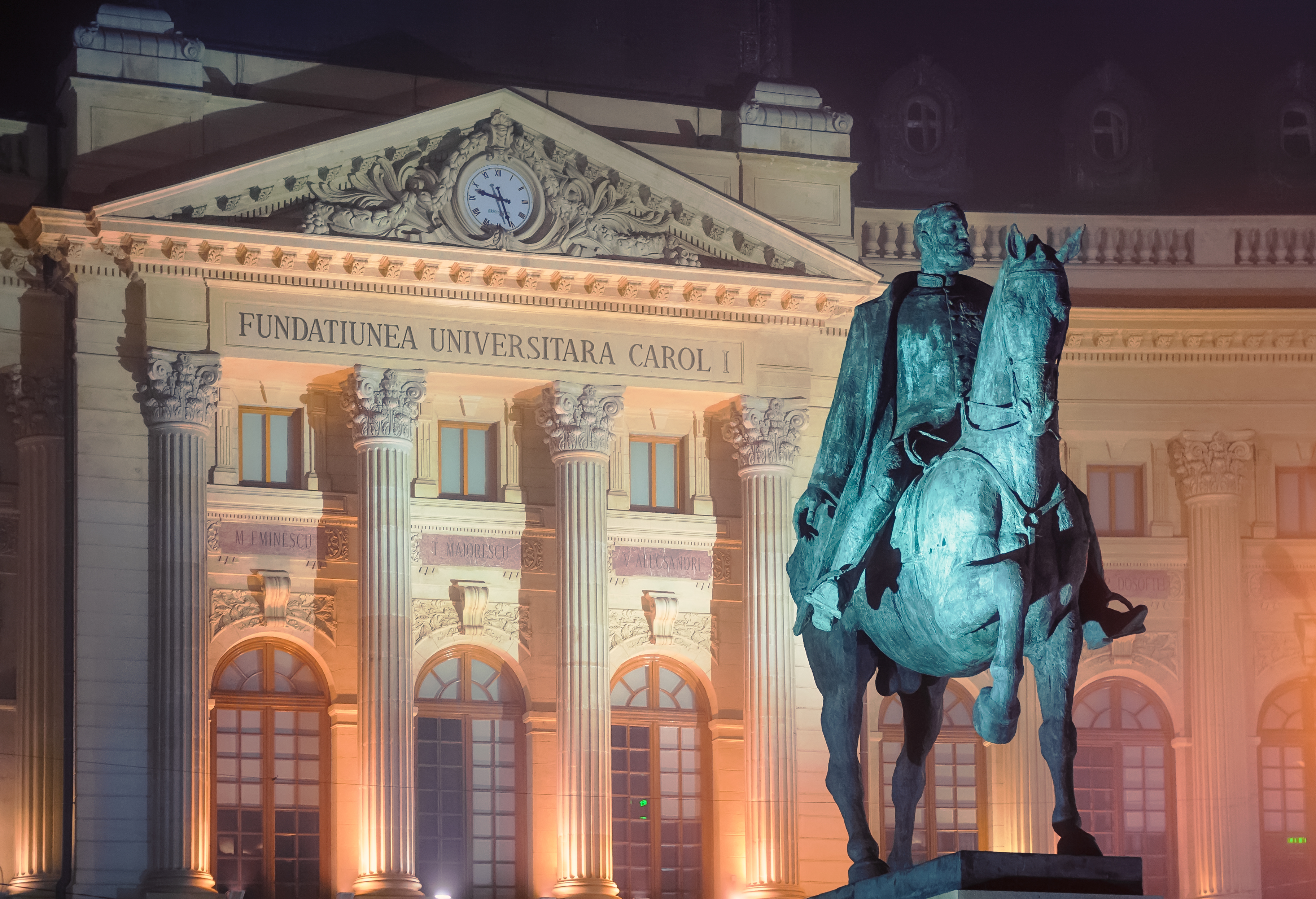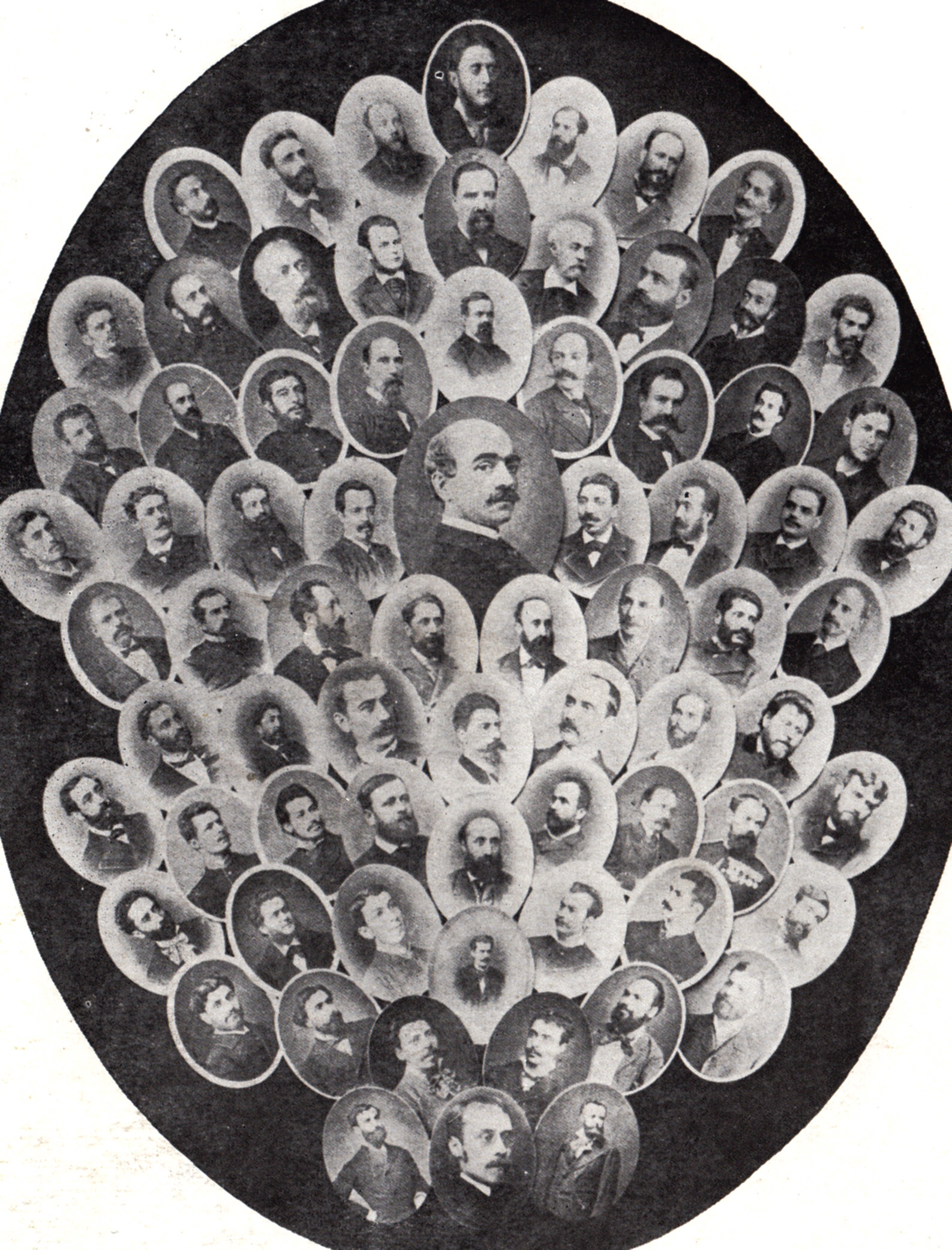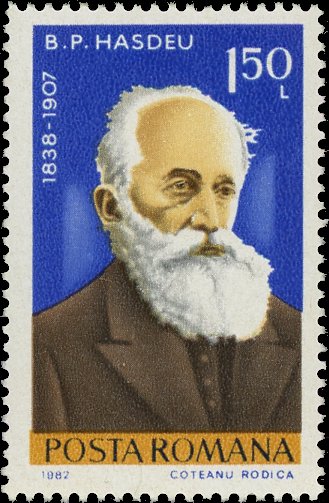|
Constantin Rădulescu-Motru
Constantin Rădulescu-Motru (; born Constantin Rădulescu, he added the surname ''Motru'' in 1892; February 15, 1868 – March 6, 1957) was a Romanian philosopher, psychologist, sociologist, logician, academic, dramatist, as well as Left-wing politics, left-Nationalism, nationalist politician. A list of members of the Romanian Academy, member of the Romanian Academy after 1923, he was its vice president in 1935–1938, 1941–1944, and its president between 1938 and 1941. Early life Born in Butoiești, Mehedinți County, he was the son of Radu Poppescu, whose natural father was Eufrosin Poteca, and Judita Butoi. His mother died during childbirth, and Radu Poppescu married Ecaterina Cernăianu, who gave birth to Constantin's nine half-siblings. During his childhood, Constantin fell ill with malaria. He also fractured a leg, resulting in a permanent physical impediment. Radu Poppescu, who worked as a secretary for Poteca for part of his life, inherited a certain sum after th ... [...More Info...] [...Related Items...] OR: [Wikipedia] [Google] [Baidu] |
University Of Bucharest
The University of Bucharest (UB) () is a public university, public research university in Bucharest, Romania. It was founded in its current form on by a decree of Prince Alexandru Ioan Cuza to convert the former Princely Academy of Bucharest, Princely Academy into the current University of Bucharest, making it one of the oldest Romanian universities. It is one of the five members of the ''Universitaria Consortium'' (a group of elite Romanian universities). The University of Bucharest offers study programmes in Romanian and English and is classified as an ''advanced research and education university'' by the Ministry of Education and Scientific Research (Romania), Ministry of Education. History The University of Bucharest was founded by the Decree no. 765 of 4 July 1864 by Alexandru Ioan Cuza and is a leading academic centre and a significant point of reference in society. The University of Bucharest is rich in history and has been actively contributing to the development a ... [...More Info...] [...Related Items...] OR: [Wikipedia] [Google] [Baidu] |
Ludwig Maximilian University Of Munich
The Ludwig Maximilian University of Munich (simply University of Munich, LMU or LMU Munich; ) is a public university, public research university in Munich, Bavaria, Germany. Originally established as the University of Ingolstadt in 1472 by Duke Ludwig IX of Bavaria-Landshut, it is Germany's List of universities in Germany, sixth-oldest university in continuous operation. In 1800, the university was moved from Ingolstadt to Landshut by King Maximilian I Joseph of Bavaria when the city was threatened by the French, before being transferred to its present-day location in Munich in 1826 by King Ludwig I of Bavaria. In 1802, the university was officially named Ludwig-Maximilians-Universität by King Maximilian I of Bavaria in honor of himself and Ludwig IX. LMU is currently the second-largest university in Germany in terms of student population; in the 2023/24 winter semester, the university had a total of 52,972 matriculated students. Of these, 10,138 were freshmen, while internati ... [...More Info...] [...Related Items...] OR: [Wikipedia] [Google] [Baidu] |
University Of Vienna
The University of Vienna (, ) is a public university, public research university in Vienna, Austria. Founded by Rudolf IV, Duke of Austria, Duke Rudolph IV in 1365, it is the oldest university in the German-speaking world and among the largest institutions of higher learning in Europe. The university is associated with 17 List of Nobel laureates, Nobel Prize winners and has been the home to many scholars of historical and academic importance. History Middle Ages to the Enlightenment The university was founded on March 12, 1365, by Rudolf IV, Duke of Austria, hence the name "Alma Mater Rudolphina". After the Charles University in Prague (1347) and Jagiellonian University in Kraków (1364), the University of Vienna is the third oldest university in Central Europe and the oldest university in the contemporary German-speaking world; it remains a question of definition as the Charles University in Prague was German-speaking when founded, too. However, Pope Urban V did not ratify th ... [...More Info...] [...Related Items...] OR: [Wikipedia] [Google] [Baidu] |
Switzerland
Switzerland, officially the Swiss Confederation, is a landlocked country located in west-central Europe. It is bordered by Italy to the south, France to the west, Germany to the north, and Austria and Liechtenstein to the east. Switzerland is geographically divided among the Swiss Plateau, the Swiss Alps, Alps and the Jura Mountains, Jura; the Alps occupy the greater part of the territory, whereas most of the country's Demographics of Switzerland, 9 million people are concentrated on the plateau, which hosts List of cities in Switzerland, its largest cities and economic centres, including Zurich, Geneva, and Lausanne. Switzerland is a federal republic composed of Cantons of Switzerland, 26 cantons, with federal authorities based in Bern. It has four main linguistic and cultural regions: German, French, Italian and Romansh language, Romansh. Although most Swiss are German-speaking, national identity is fairly cohesive, being rooted in a common historical background, shared ... [...More Info...] [...Related Items...] OR: [Wikipedia] [Google] [Baidu] |
German Empire
The German Empire (),; ; World Book, Inc. ''The World Book dictionary, Volume 1''. World Book, Inc., 2003. p. 572. States that Deutsches Reich translates as "German Realm" and was a former official name of Germany. also referred to as Imperial Germany, the Second Reich or simply Germany, was the period of the German Reich; . from the unification of Germany in 1871 until the German revolution of 1918–1919, November Revolution in 1918, when the German Reich changed its form of government from a monarchy to a Weimar Republic, republic. The German Empire consisted of States of the German Empire, 25 states, each with its own nobility: four constituent Monarchy, kingdoms, six Grand duchy, grand duchies, five Duchy, duchies (six before 1876), seven Principality, principalities, three Free imperial city, free Hanseatic League, Hanseatic City-state, cities, and Alsace–Lorraine, one imperial territory. While Prussia was one of four kingdoms in the realm, it contained about two-thirds ... [...More Info...] [...Related Items...] OR: [Wikipedia] [Google] [Baidu] |
Austria-Hungary
Austria-Hungary, also referred to as the Austro-Hungarian Empire, the Dual Monarchy or the Habsburg Monarchy, was a multi-national constitutional monarchy in Central Europe#Before World War I, Central Europe between 1867 and 1918. A military and diplomatic alliance, it consisted of two sovereign states with a single monarch who was titled both the Emperor of Austria and the King of Hungary. Austria-Hungary constituted the last phase in the constitutional evolution of the Habsburg monarchy: it was formed with the Austro-Hungarian Compromise of 1867 in the aftermath of the Austro-Prussian War, following wars of independence by Hungary in opposition to Habsburg rule. It was dissolved shortly after Dissolution of Austria-Hungary#Dissolution, Hungary terminated the union with Austria in 1918 at the end of World War 1. One of Europe's major powers, Austria-Hungary was geographically the second-largest country in Europe (after Russian Empire, Russia) and the third-most populous (afte ... [...More Info...] [...Related Items...] OR: [Wikipedia] [Google] [Baidu] |
Magna Cum Laude
Latin honors are a system of Latin phrases used in some colleges and universities to indicate the level of distinction with which an academic degree has been earned. The system is primarily used in the United States. It is also used in some Southeastern Asian countries with European colonial history, such as Indonesia and the Philippines, and African countries such as Zambia and South Africa, although sometimes translations of these phrases are used instead of the Latin originals. The honors distinction should not be confused with the honors degrees offered in some countries, or with honorary degrees. The system usually has three levels of honor (listed in order of increasing merit): ''cum laude'', ''magna cum laude'', and ''summa cum laude''. Generally, a college or university's regulations set out definite criteria a student must meet to obtain a given honor. For example, the student might be required to achieve a specific grade point average, submit an honors thesis for evalu ... [...More Info...] [...Related Items...] OR: [Wikipedia] [Google] [Baidu] |
Literary Society
A literary society is a group of people interested in literature. In the modern sense, this refers to a society that wants to promote one genre of writing or a specific author. Modern literary societies typically promote research, publish newsletters, and hold meetings where findings can be presented and discussed. Some are more academic and scholarly, while others are more social groups of amateurs who appreciate a chance to discuss their favourite writer with other hobbyists. Historically, "literary society" has also referred to salons such as those of Madame de Stael, Madame Geoffrin and Madame de Tencin in Ancien Regime France, though these could more accurately be considered literary circles or coteries. Another meaning was of college literary societies, student groups specific to the United States. The oldest formal societies for writing and promoting poetry are the chambers of rhetoric in the Low Countries, which date back to the Middle Ages. 19th century literary ... [...More Info...] [...Related Items...] OR: [Wikipedia] [Google] [Baidu] |
Junimea
''Junimea'' was a Romanian literary society founded in Iași in 1863, through the initiative of several foreign-educated personalities led by Titu Maiorescu, Petre P. Carp, Vasile Pogor, Theodor Rosetti and Iacob Negruzzi. The foremost personality and mentor of the society was Maiorescu, who, through the means of scientific papers and essays, helped establish the basis of the modern Romanian culture. Junimea was the most influential intellectual and political association from Romania in the 19th century. Beginnings In 1863, four years after the unification of Moldavia and Wallachia (''see: United Principalities''), and after the moving of the capital to Bucharest, five enthusiastic young people who had just returned from their studies abroad created in Iaşi a society which wanted to stimulate the cultural life in the city. They chose the name "''Junimea''", a slightly antiquated Romanian word for "Youth". It is notable that four of the founders were part of the Romanian elite ... [...More Info...] [...Related Items...] OR: [Wikipedia] [Google] [Baidu] |
Intellectual
An intellectual is a person who engages in critical thinking, research, and Human self-reflection, reflection about the nature of reality, especially the nature of society and proposed solutions for its normative problems. Coming from the world of culture, either as a creator or as a mediator, the intellectual participates in politics, either to defend a concrete proposition or to denounce an injustice, usually by either rejecting, producing or extending an ideology, and by defending a system of value theory, values. Etymological background "Man of letters" The term "man of letters" derives from the French term ''Belles-lettres, belletrist'' or ''homme de lettres'' but is not synonymous with "an academic". A "man of letters" was a literate man, able to read and write, and thus highly valued in the upper strata of society in a time when literacy was rare. In the 17th and 18th centuries, the term ''Belletrist(s)'' came to be applied to the ''literati'': the French particip ... [...More Info...] [...Related Items...] OR: [Wikipedia] [Google] [Baidu] |
Bogdan Petriceicu Hasdeu
Bogdan Petriceicu Hasdeu (; 26 February 1838 – ) was a Romanian writer and philologist who pioneered many branches of Romanian philology and history. Life He was born Tadeu Hâjdeu in Cristineștii Hotinului (now Kerstentsi in Chernivtsi Oblast, Ukraine), northern Bessarabia, at the time part of Imperial Russia. His father was the writer Alexandru Hâjdeu, a descendant of the Hâjdău family of Moldovan boyars, with noted Polish connections. Alexandru's mother was Jewish. After studying law at the University of Kharkiv, he fought as a Russian hussar in the Crimean War. In 1858, he settled in Iași as a high school teacher and librarian. In 1865, Hasdeu published a monograph on Ioan Vodă the Terrible, renaming him for the first time ''cel Viteaz''—"the Brave". The portrayal of this violent, short rule as a glorious moment (and of Ioan himself as a reformer) drew criticism from the '' Junimea'' society, a conflict which was to follow Hasdeu for the rest of his life. ... [...More Info...] [...Related Items...] OR: [Wikipedia] [Google] [Baidu] |







